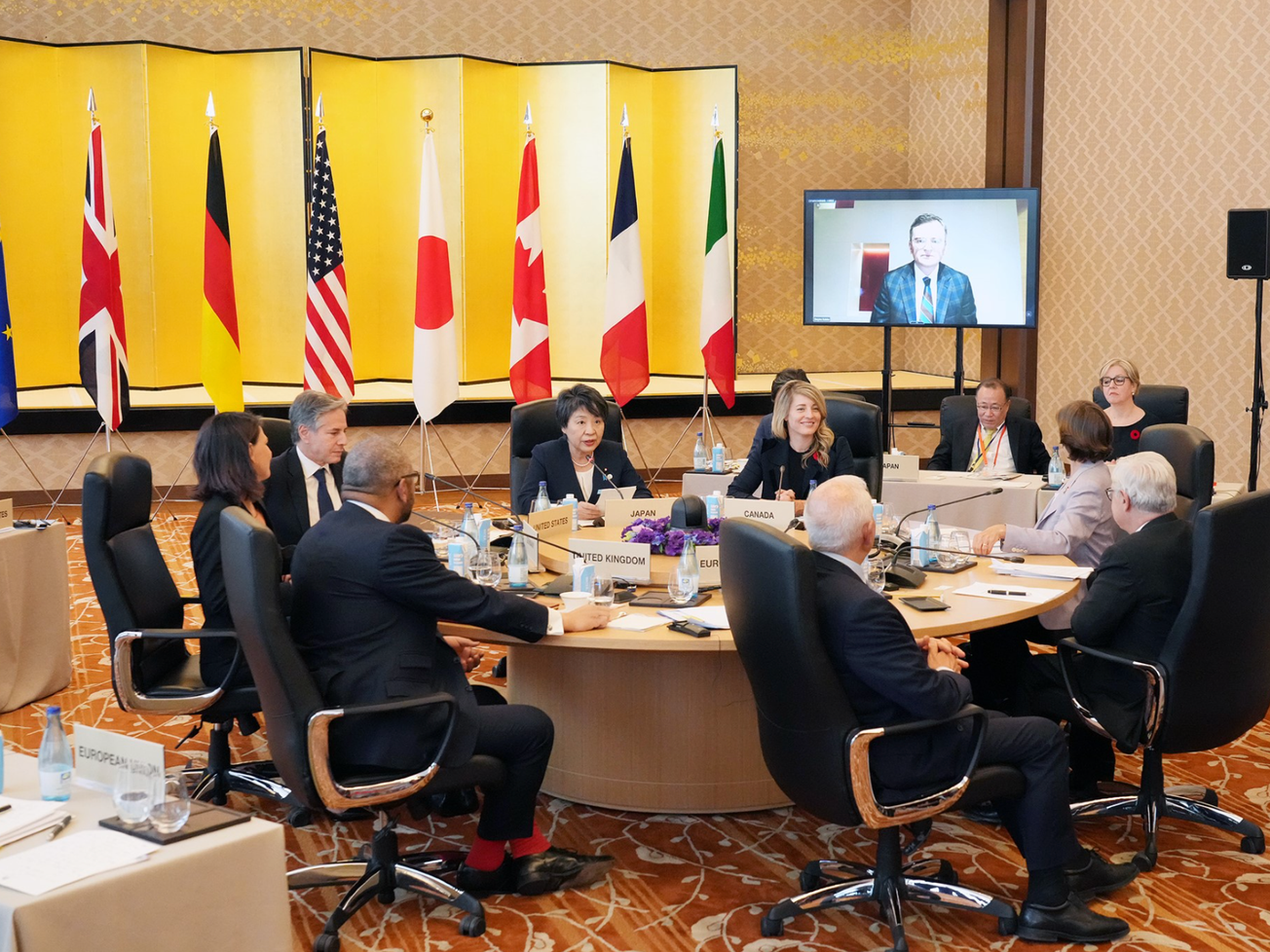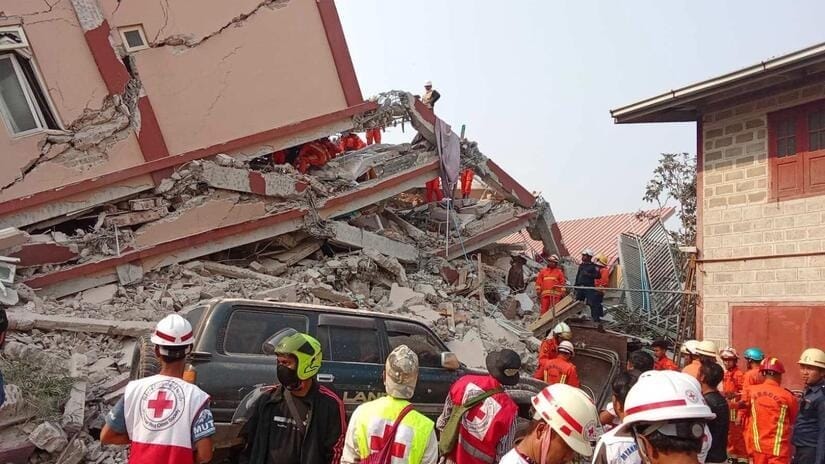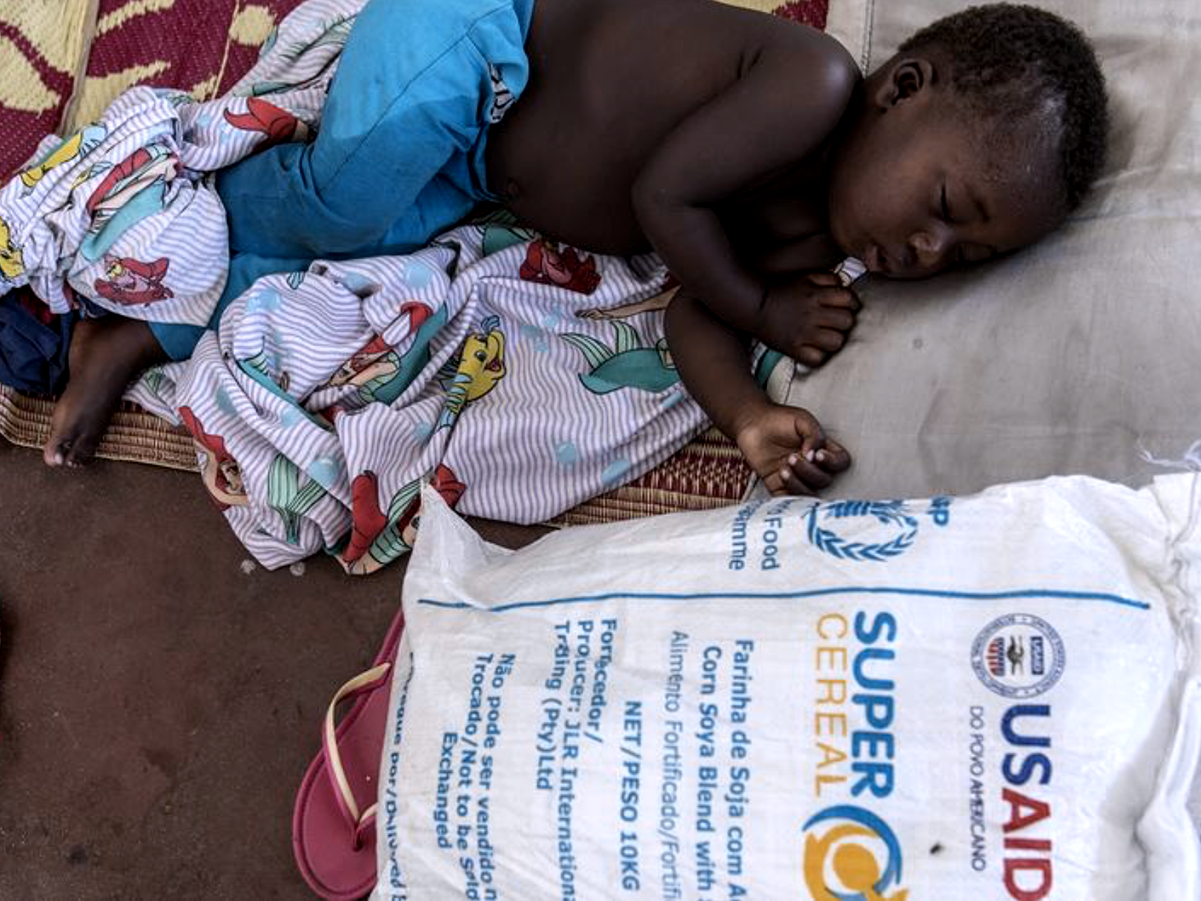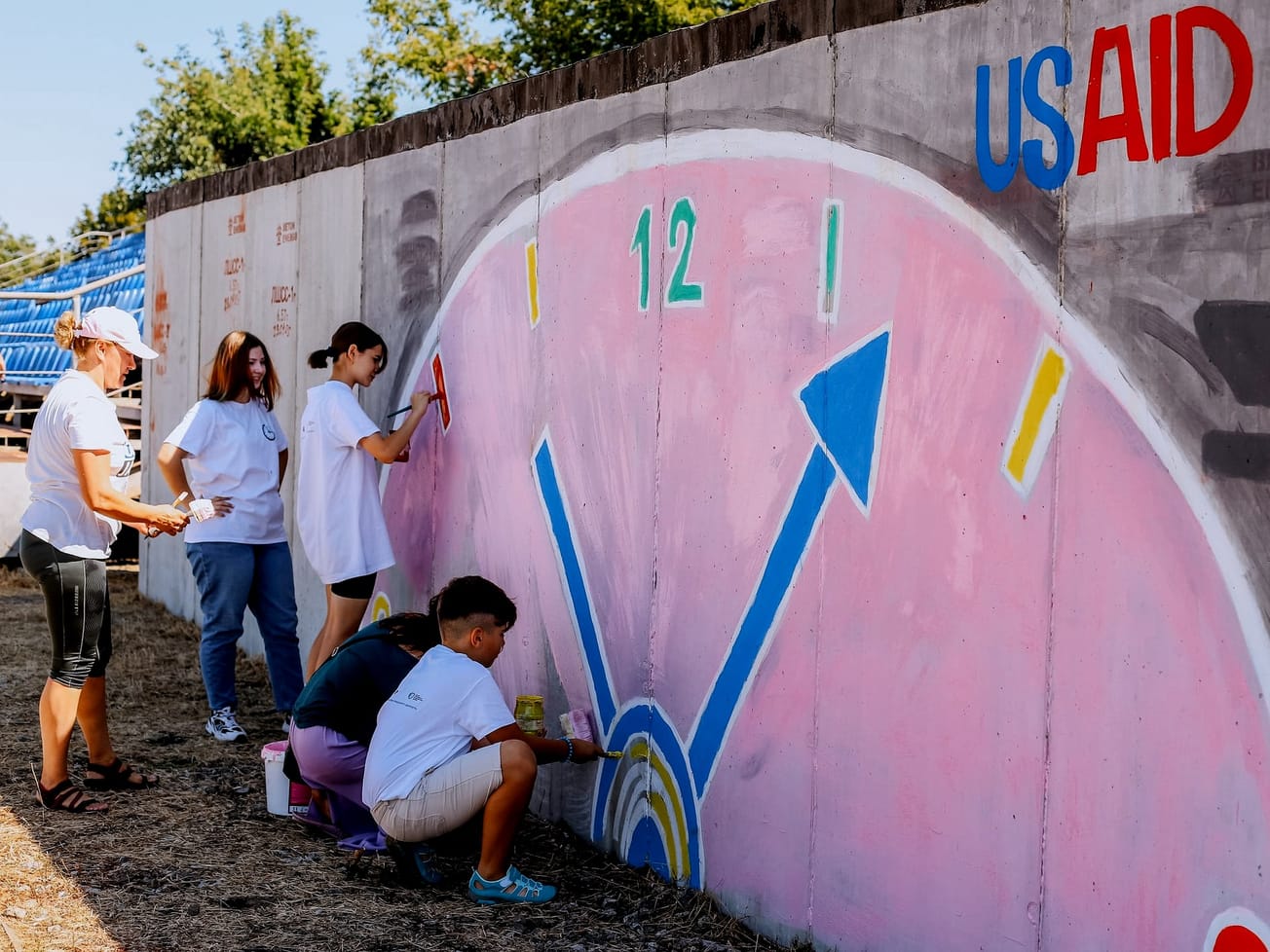Top diplomats from the Group of Seven rich democracies called for pauses in the Israel-Hamas war so humanitarian aid can reach suffering civilians.
The G-7 foreign ministers on Wednesday condemned the militant group Hamas and its terror attack on Oct. 7 that killed 1,400 Israelis and began the fighting, and demanded that Hamas release about 240 Israeli and foreign nationals that have been held hostage in Gaza for a month. Several G-7 nations plus Israel have designated Hamas as a terrorist organization.









